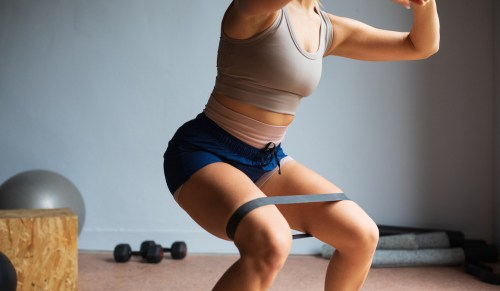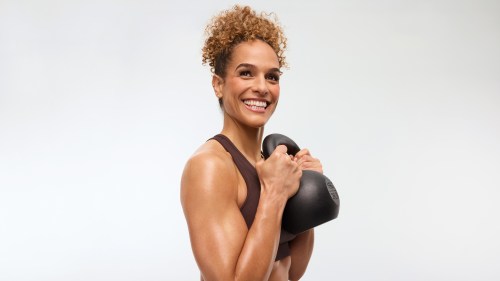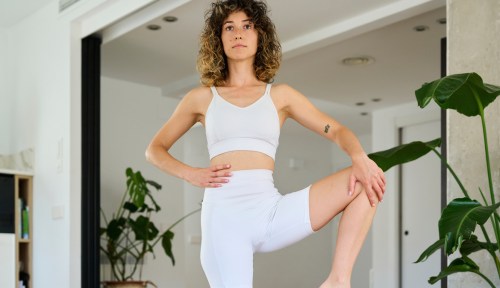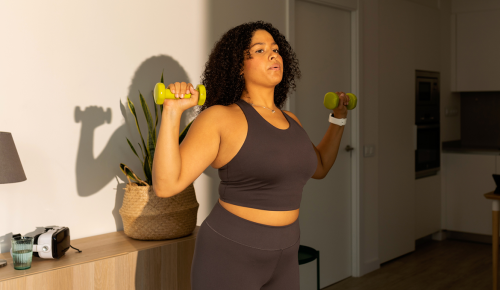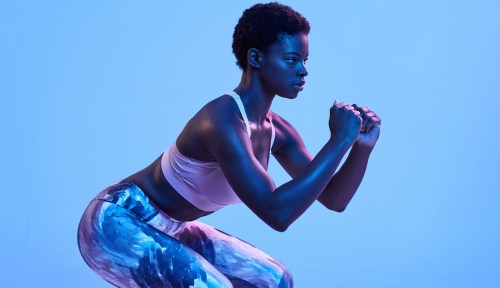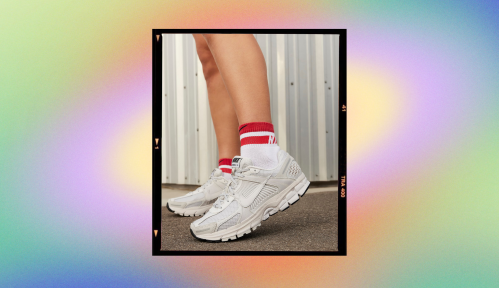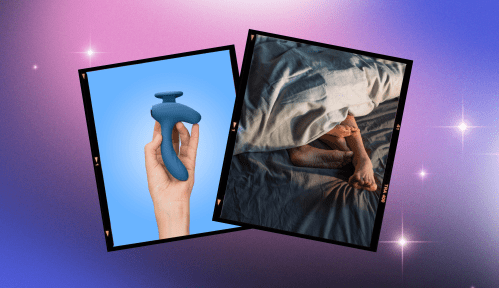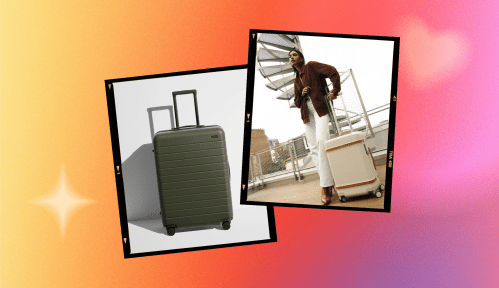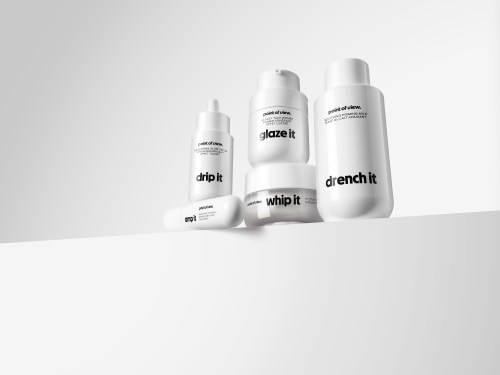After a particularly grueling workout, I usually expect to feel strong and ready to take on the world. But every once in a while, I’ll hop off the mat and instead of feeling ready to go, I sort of feel like I need to take a beat, because I’m little bloated. And I’ve gotta ask: WTF? Can exercise result in bloating?
In a word: yes.
However, some modalities are more apt to leave you feeling meh than others. “While most styles of workouts can help us reduce our bloating, there are few types that can cause bloating—the biggest culprit is HIIT,” says Ally McKinney, Gold’s Gym certified personal trainer. “As we build in intensity, our breathing can become very forceful. In these moments we can actually fill our stomach, along with our lungs, full of air. Once air gets trapped in our stomachs, it will be retained for some time and cause that post workout bloat.”
Another reason why your HIIT workouts could be leading to bloating is because of the stress they cause to your body. “When we reach a new level or try a more stressful workout our body will respond by releasing cortisol, and cortisol loves to disrupt our digestive functioning and can cause bloating,” says McKinney.
Take a look at what you’re eating
More than what you’re doing on the mat, however, what you choose to fuel yourself with ahead of time can also make a difference. “Are you eating foods high in fiber or fat before your workout? While these are key components to a healthy diet, they take longer to digest,” explains McKinney, noting that you should instead opt for a pre-workout meal with a simple carbohydrate and some protein, like a banana and oatmeal.
When you eat makes a difference, too. If you’re going to eat two to three hours ahead of a workout, McKinney notes that you’ll want something balanced with protein, fat, and carbs. But as you get closer to go time—especially if you’re only an hour out—you’ll want to stick with simple carbohydrates and a small amount of protein.
“Pre-workout we want to look out for foods high in fiber, because fiber takes a lot of effort for our body to breakdown which means there needs to be a lot of fluid in our stomach and digestive tract,” explains McKinney. So you’ll want to avoid legumes, leafy greens and cruciferous vegetables. Plus, it’s worth staying away from sugar-free foods, diet drinks, and carbonated beverages, because “artificial sweeteners are very hard on your body to digest and carbonated beverages are literally delivering extra air into your stomach via the carbonation itself,” says McKinney.
And food isn’t the only type of fuel that can make you feel bloated after a sweat sesh: Under and over hydrating can both have the same effect, so while you certainly want to drink some water before and during a workout, you don’t want to sip on too much of the stuff. “As we diminish our fluid levels our bodies respond by retaining the water that it does have,” says McKinney. This can mean that you might feel a little more bloated than usual.
So what can you do if you feel bloated?
If you start to feel bloated during a workout, try some light, steady-state cardio. “Just getting your body moving when you feel bloated is going to help you start to push that gas out of your stomach,” says McKinney. Or, work to find some space with a light yoga series, cycling through puppy dog, sphinx, and cat-cow poses to “compress and relax your torso and thus get that air out of your digestive tract,” she says.
The best way to combat bloating during a workout, though, is with preparation. Pack your meal, drink lots of water throughout the day so you aren’t hydrating at the last second, and gear up for a solid post-workout meal, too. “It’s all about how you plan,” says McKinney. “The better you plan, the more you can fight and vanquish the bloat.”
Aside from the fact that it makes you bloated, here’s why you shouldn’t be doing more than two HIIT workouts in a week. Plus, the real reason why you (and, ok, all of us) fart in yoga class.
Sign Up for Our Daily Newsletter
Get all the latest in wellness, trends, food, fitness, beauty, and more delivered right to your inbox.
Got it, you've been added to our email list.

